When it comes to Nigerian cuisine, one dish stands out as a timeless classic with roots that
run deep in the Yoruba culture: Amala, Gbegiri, and Ewedu. This trio isn’t just food; it’s a
reminder of home for many Nigerians, and a must-try for those new to the flavors of West
Africa.
From its distinct look to its rich taste, this combo has become iconic. Whether it’s served at
a family gathering, during traditional events, or in roadside bukas (small eateries), the meal
is more than just sustenance; it’s a celebration of Yoruba heritage. So, grab a seat and get
ready to dive into the history, preparation, and allure of this beloved Yoruba dish.
The Foundation: Amala
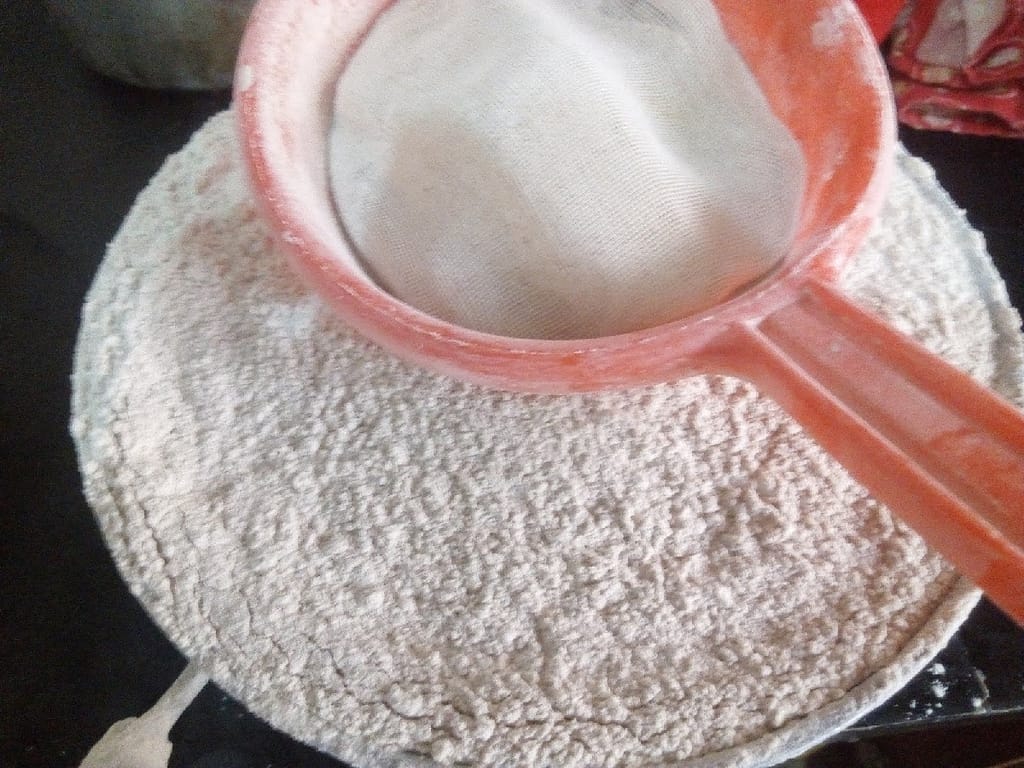
At the heart of this meal is Amala, a staple food made from yam flour (elubo), though it can
also be made from cassava or plantain. The flour is cooked with water, turning it into a
stretchy, dark brown dough. Amala is beloved for its unique texture and earthy taste, which
pairs beautifully with spicy and flavorful soups.
While it might look simple, Amala requires skill and patience to make just right. It’s
prepared by stirring the flour into boiling water until it reaches a smooth, lump-free
consistency, which takes a bit of finesse. When done right, Amala is soft and stretchy, the
perfect foundation for soaking up soups and stews. Its light, slightly tangy flavor
complements the richness of the accompanying dishes, allowing each mouthful to
balance texture and taste.
The Supporting Role: Gbegiri (Bean Soup)
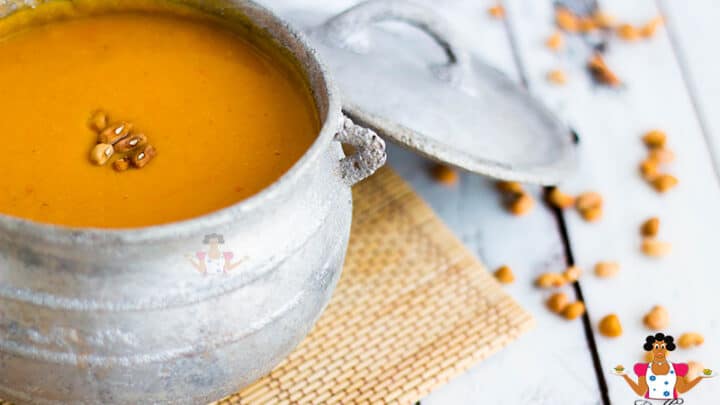
Next up is Gbegiri, a silky, flavorful soup made from peeled beans (usually black-eyed
peas). Gbegiri has a unique texture, thick, creamy, and almost custard-like, with a mildly
sweet flavor that perfectly contrasts the bitterness of Ewedu.
Making Gbegiri involves peeling the beans, boiling them until soft, and then mashing them
to a smooth paste. This paste is then seasoned with spices and often some palm oil, which
gives it its signature color and richness. Gbegiri brings warmth and body to the meal, acting
as a soothing base that complements the slightly bitter, green taste of Ewedu and the mild
flavor of Amala.
The Secret Ingredient: Ewedu (Jute Leaves Soup)
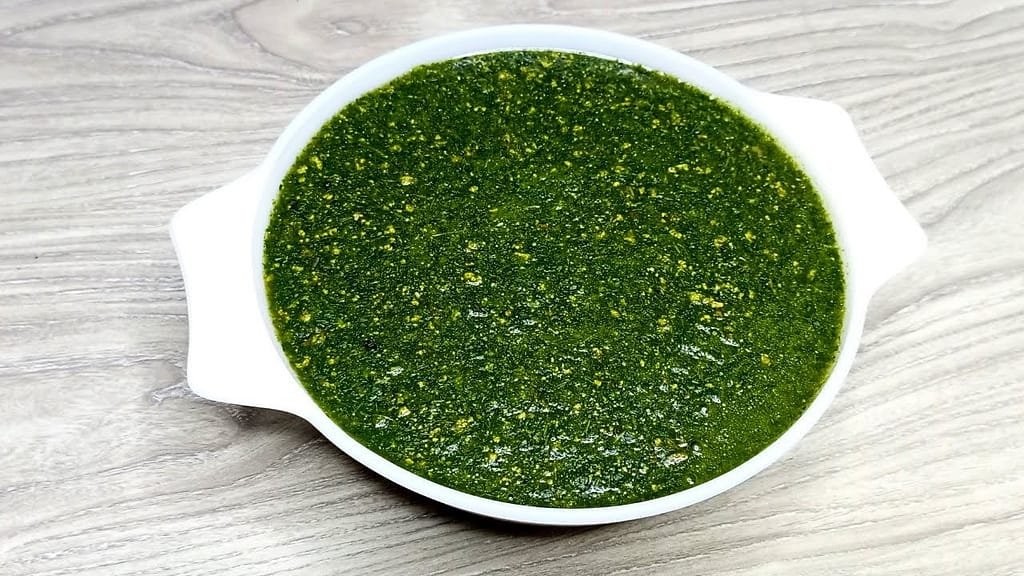
Finally, we have Ewedu, a green soup made from jute leaves. This simple yet flavorful soup
is essential to Yoruba cuisine and has a distinctly slimy texture that helps it glide
effortlessly over Amala. With a texture similar to okra soup, Ewedu adds a burst of color
and freshness to the dish, not to mention a boost of nutrients.
Ewedu is prepared by boiling jute leaves with a bit of water and whisking them with a
broom-like whisk called “ijabe” until they break down into a smooth, sticky consistency. To
bring out its flavor, Ewedu is usually seasoned with “iru” (fermented locust beans), which
adds a savory depth. Some might add ground crayfish for a hint of umami, making Ewedu a
flavor-packed green that perfectly complements both Amala and Gbegiri.
The Harmony: Bringing It All Together
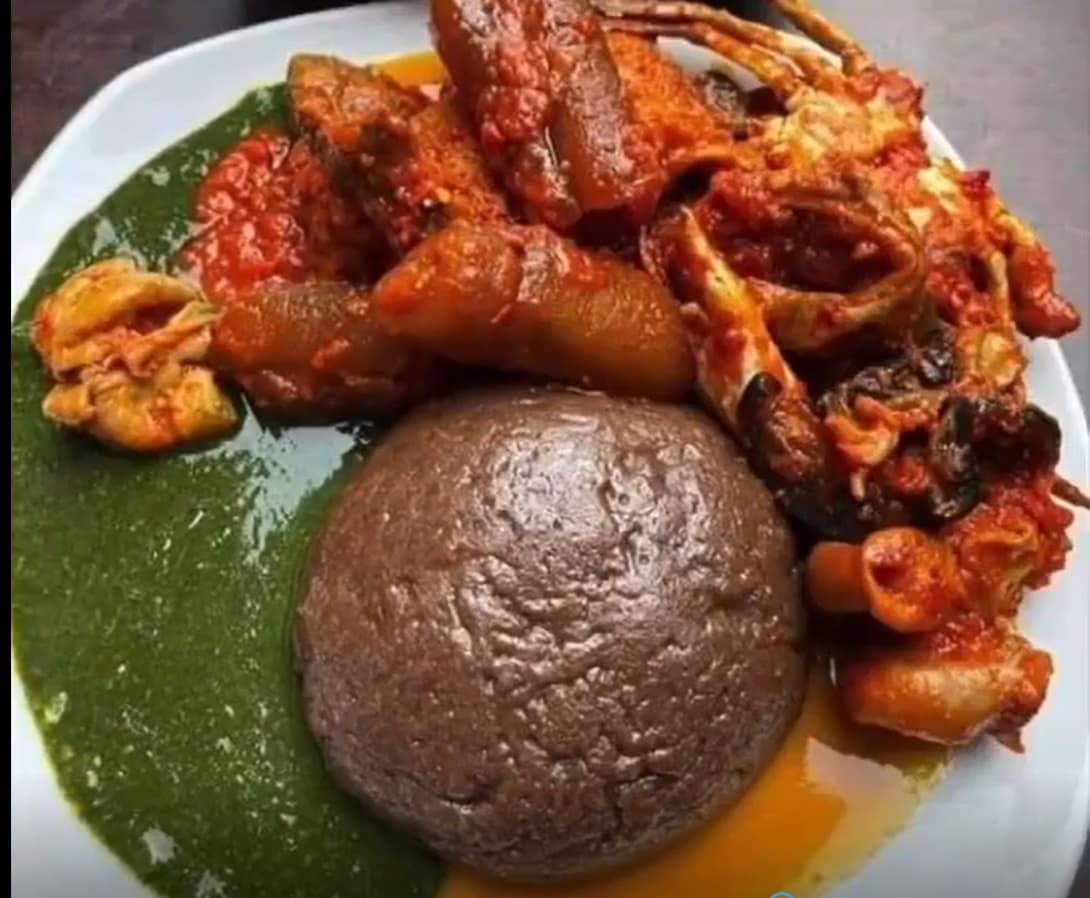
While each component has its own flavor and texture, it’s the combination that creates the
magic. Amala, Gbegiri, and Ewedu are often served with “obè ata” (a spicy, rich pepper
stew) and a choice of protein like goat meat, beef, or “panko” (cow skin), rounding out the
flavors with a spicy, savory kick.
Each spoonful is a mix of flavors: the soft, stretchy Amala, the creamy Gbegiri, and the
slightly slippery Ewedu, all blending with the peppery heat of the stew. The experience is
not only about taste but also about texture, a harmony of smooth, stretchy, and slimy,
creating a mouthfeel that’s truly unique.
Beyond The Flavor: A Cultural Staple
For the Yoruba people, this dish is more than food. It’s a staple at gatherings, a favorite at
local “bukas”, and a symbol of Yoruba heritage that’s cherished across generations. Amala,
Gbegiri, and Ewedu are not only popular in the Southwest of Nigeria but have gained a
following nationwide, enjoyed by anyone who appreciates traditional Nigerian cuisine.
The dish is often a go-to during celebrations and is especially beloved at parties and family
get-togethers, where the joy of sharing food brings people together. It’s not uncommon to
see people traveling miles just to have a taste of Amala and its accompaniments from a
famous restaurant or “buka”. In fact, it’s so popular that restaurants dedicated solely to
serving this dish are often packed with regulars and new visitors alike.
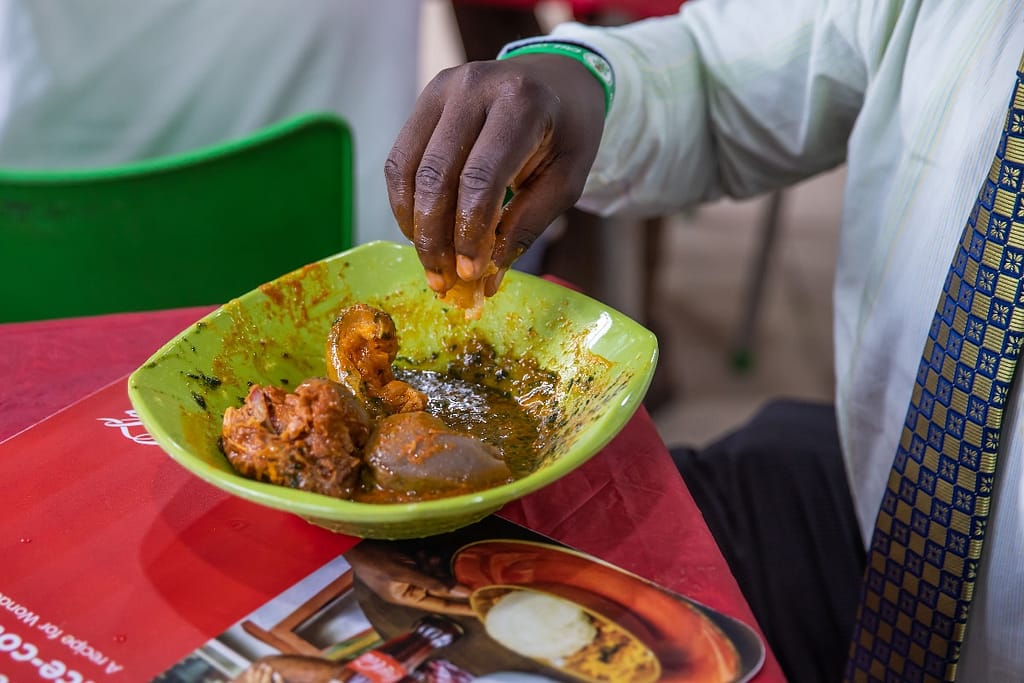
A Nutrient-Rich Choice
Apart from its rich flavor and cultural significance, Amala, Gbegiri, and Ewedu are packed
with nutritional benefits. Amala is high in fiber and carbohydrates, making it filling and
energy-boosting. Ewedu is loaded with vitamins A and C, calcium, and iron, while Gbegiri
offers a good source of protein from the beans. The addition of palm oil, which is rich in
vitamin E, and the use of locust beans in Ewedu, known for their probiotic benefits, make
this a nutrient-packed meal.
Where To Find It and Why You Should Try It
If you’re curious to try this dish, you’ll find it served in Nigerian restaurants both locally and
internationally, especially in spots that specialize in traditional Nigerian cuisine. From
mama puts (small roadside eateries) to upscale Nigerian dining spots, Amala, Gbegiri,
and Ewedu remain iconic.
And if you’re looking for an authentic experience, visiting a local ‘’buka” is your best bet.
The vibe is casual, warm, and unpretentious, just the place to savor this classic dish while
taking in the vibrant atmosphere of Nigerian street food culture.
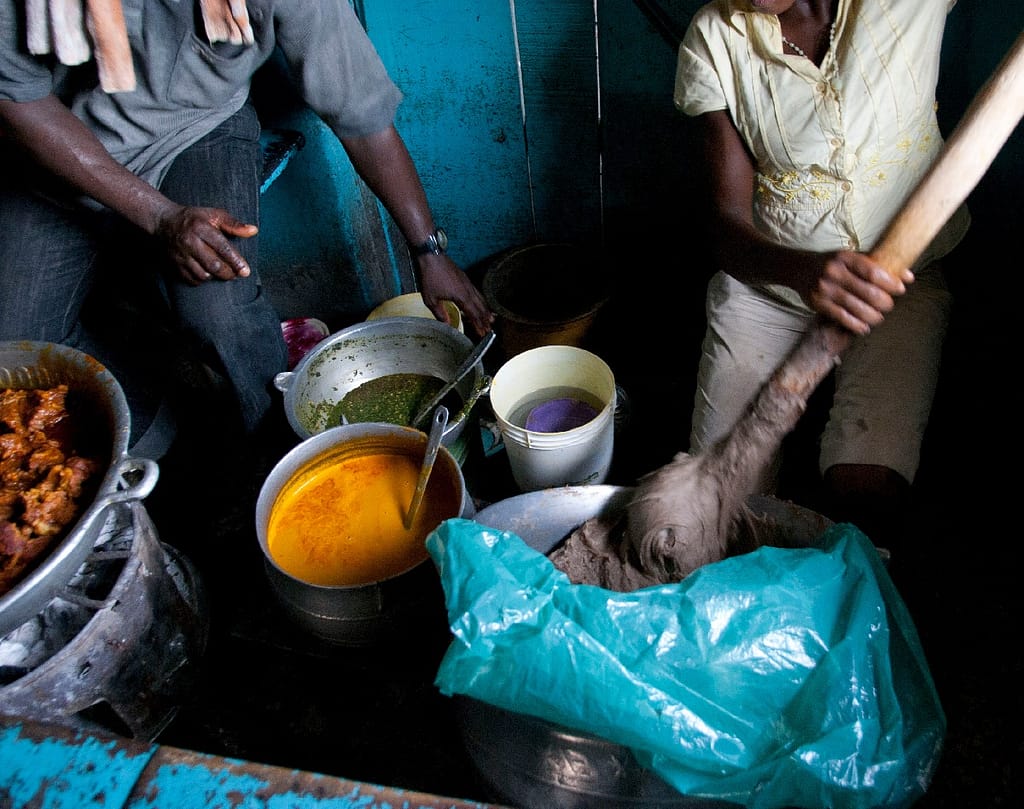
In Conclusion: A Dish That Defines A Culture
Amala, Gbegiri, and Ewedu are more than just food; they are a comforting reminder of
home for many, a taste of Yoruba pride, and a symbol of Nigeria’s diverse culinary
landscape. With every bite, you’re experiencing a dish that has stood the test of time and
remains a beloved part of life for millions. Whether you’re enjoying it for the first time or it’s
been a lifelong favorite, this trio is a testament to the power of food to connect us to our
roots and to each other.
So, the next time you come across a chance to try Amala, Gbegiri, and Ewedu, don’t
hesitate. Take a bite, savor the flavors, and let yourself be a part of this age-old Yoruba
tradition.


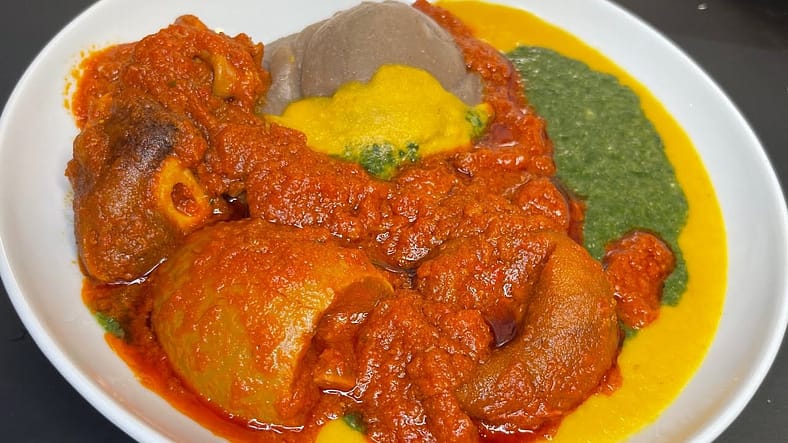
1 Comment
Pingback: Afrikaanspective: A Fresh Lens on Africa, From Our Own Perspective - Afrikaanspective